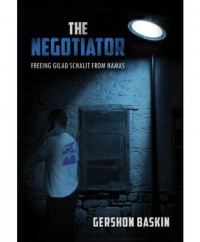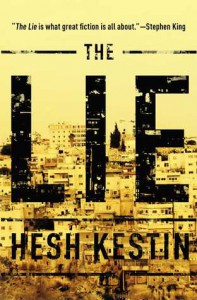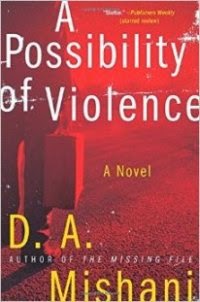When an Israeli Author Leaps into the Unknown


Last week I signed a contract with an American-based literary agent. My new book, a suspense novel set in both Israel and Bulgaria, is on submission.
I describe myself as an American-born, Israeli author who writes about Bulgaria. My first novel, the self-published Valley of Thracians, was set entirely in Bulgaria. InThe Burgas Affair, the action takes place in two countries I love - Israel and Bulgaria.
You probably have guessed why I write about, and love Israel. I was born in Sioux City, Iowa, and made aliyah with my family at the age of fifteen. I finished high school in Jerusalem, served for three years in the Israel Defense Forces, was a founding member of Kibbutz Yahel in the Arava Valley. I married Jodie, who had moved to Israel from Ithaca, New York, and together we began raising a family. We eventually moved to Moshav Neve Ilan, outside Jerusalem, where we continue to live today.
But why Bulgaria?
My wife and I received an amazing once-in-a-lifetime opportunity and we made the most of it. My position at a Ramat Gan-based marketing company was relocated to Sofia, Bulgaria, on a two-year contract. My company markets online gaming websites and software – only in countries where it is legal to play these games. Our primary market is Europe, and therefore certain management positions needed to be physically located in Europe.
We immediately fell in love with Bulgaria. The food was different and very tasty. The culture was fascinating. The history, both the ancient glory of the Thracians that led me to mention them in my novel, and the more modern dark years of Bulgaria's communist regime – it was captivating. We traveled all over the country, from the Black Sea shores to the mountain villages. We made many Bulgarian friends. I could talk to you about Bulgaria for hours.
The one thing I must mention is the special role Bulgarians played in rescuing their Jewish citizens during World War Two. Although Bulgaria sided with the Nazis, its entire community of some 55,000 Jews survived the Holocaust. Because of the bravery of Bulgarian politicians, clergymen, and ordinary citizens, Bulgarian Jews survived. Unfortunately, this amazing story has a sad element – over 11,000 Jews from the Bulgarian-controlled territories of Macedonia and northern Greece were sent to the camps and died.
Most of Bulgaria's Jewish community made aliyah shortly after the establishment of the State of Israel. There is a small, active Jewish community in Sofia. The synagogue there is an amazing building. Bulgaria is a strong supporter and ally of Israel. Living there, we felt very comfortable and never hid the fact that we were Israelis or that we were Jews.
We visited Bulgaria this month. Our trip to Sofia was like going home. We saw our friends. I spoke a bit of broken Bulgarian that the locals understood – they appreciated my efforts to speak their language. And we drove into the Rhodopi Mountains, a beautiful area near the Greek border that I will be writing about for months to come.
I am not a travel guide – I am a writer. I love to write about Bulgaria in efforts to convince western tourists to visit that country. Bulgaria is stunning, different, and totally affordable. I wish I could show you the country personally. I love Bulgaria!
Coming back to Israel from our two years abroad, I became inspired to write, and in particular, I wanted to write about Bulgaria. But, I also love to write about Israel, the Jewish holidays, and I review books written by Israeli authors, especially those just translated into English for the first time.
I can proudly say that The Times of Israel became my first home for articles, book reviews, and even humorous pieces. My debut blog appeared on these virtual pages on July 12, 2012. This is my 77th article to be published at The Times of Israel.
I now write for the Huffington Post, the Jerusalem Post, the Oslo Times, and a number of other online media sites.
If you want to know more about my upcoming novel, or the identity of the agent who will help me find a home for that book, you can read the short announcement here on my personal blog. This article is not about that, and it's not an attempt to get you to buy my first book. (Although I won't complain if you do.)
This article is about the sky. This article is about how far someone who studied English in a Jerusalem school, and who served in the IDF, and who raised three young children on a very young kibbutz, and who continued to dream and dream for years and years – how far that person can go with his writing.
The sky's the limit.


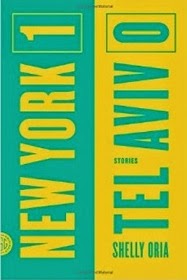
 1
1
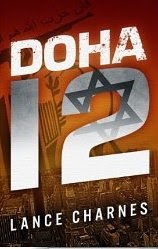
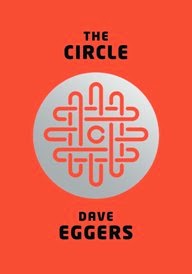 It's a bit embarrassing to admit, but every day I check how many new followers I have on Twitter; how many Likes my Facebook posts received; and how many pageviews were registered on my blog. I'm not obsessed with being successful on social media, but the more re-tweets, the better. For me, this is just part of my efforts to build my platform as an author.
It's a bit embarrassing to admit, but every day I check how many new followers I have on Twitter; how many Likes my Facebook posts received; and how many pageviews were registered on my blog. I'm not obsessed with being successful on social media, but the more re-tweets, the better. For me, this is just part of my efforts to build my platform as an author. 1
1
 The short story collection Tel Aviv Noir, edited by Etgar Keret and Assaf Gavron, takes readers on a tour through the city's seedy neighborhoods.
The short story collection Tel Aviv Noir, edited by Etgar Keret and Assaf Gavron, takes readers on a tour through the city's seedy neighborhoods.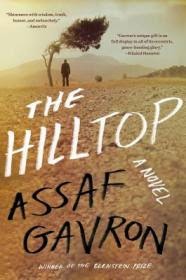
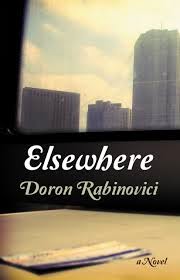 In his novel, Elsewhere, Israeli-Austrian writer Doron Rabinovici raises questions of identity and belonging, Europe and Israel.
In his novel, Elsewhere, Israeli-Austrian writer Doron Rabinovici raises questions of identity and belonging, Europe and Israel. 1
1
 In The War on Women in Israel, Dr. Elana Maryles Sztokman asks why Israel's government has constantly sided with an extreme version of Judaism.
In The War on Women in Israel, Dr. Elana Maryles Sztokman asks why Israel's government has constantly sided with an extreme version of Judaism.

